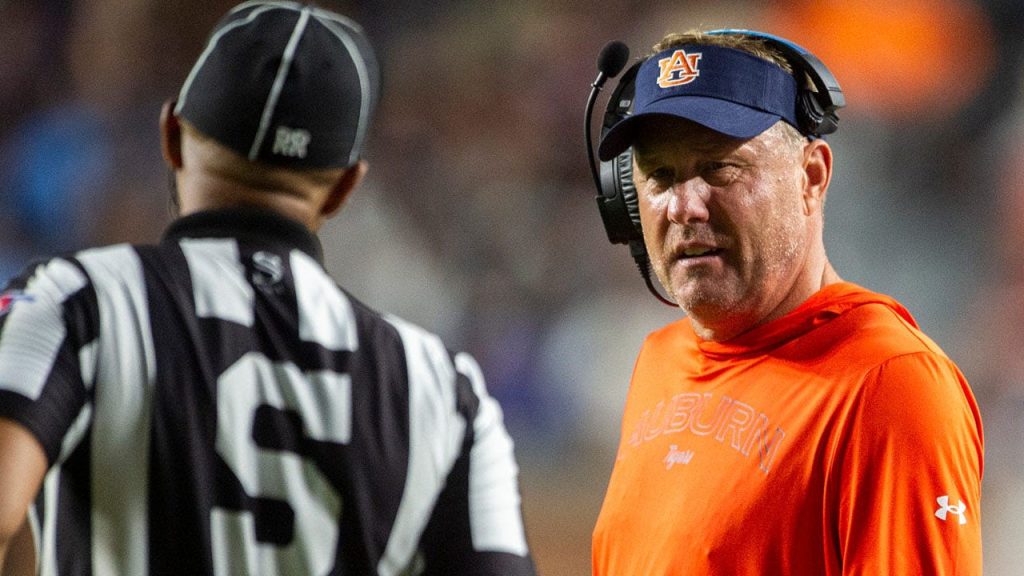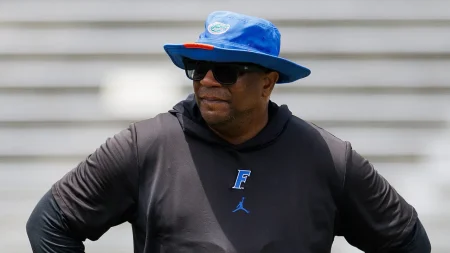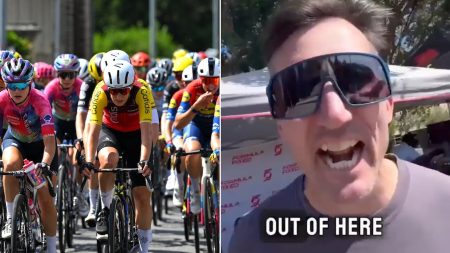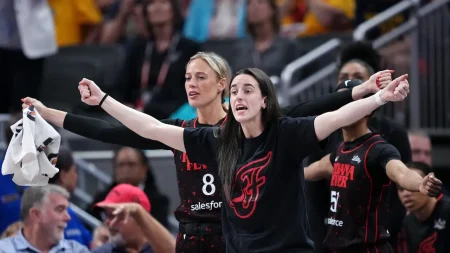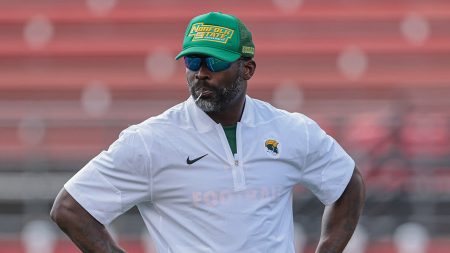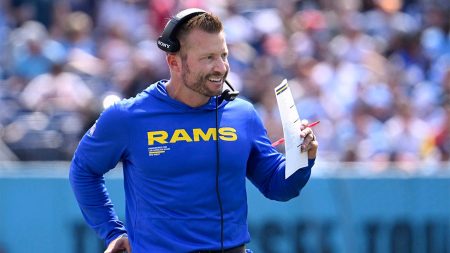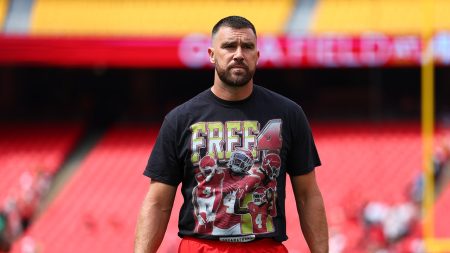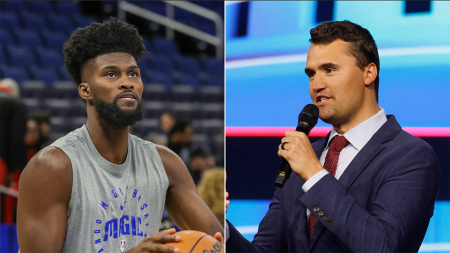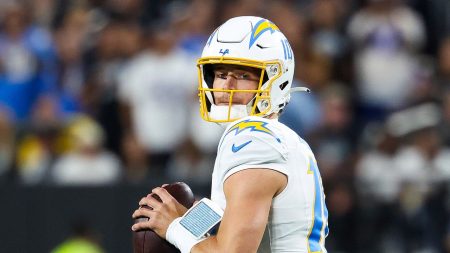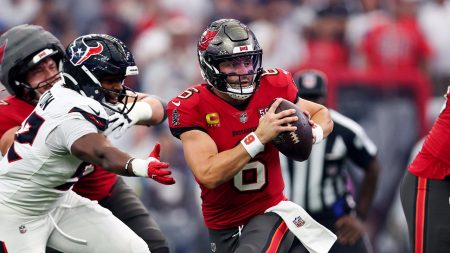Former college football quarterback Bo Wallace criticized Auburn head coach Hugh Freeze for his comments on his quarterbacks after a loss to Arkansas. Wallace, who played under Freeze at Ole Miss, accused Freeze of throwing his quarterbacks “under the bus” and questioned if anyone would want to play for him. Wallace mentioned that Freeze never helped him as a player and was only focused on getting victories. Freeze had made critical comments about his quarterbacks, Peyton Thorne and Hank Brown, who combined for four interceptions in the game.
Thorne finished the game with 213 passing yards and two touchdown passes, but Brown struggled with seven completions for 72 yards and multiple interceptions. Freeze expressed the need to find a quarterback who wouldn’t throw to the opposing team and running backs who could hold onto the ball. Auburn’s loss to Arkansas dropped their record to 2-2 for the season, while Arkansas improved to 3-1. Wallace highlighted that Freeze tended to blame others for losses but took credit for wins in his press conferences. Despite acknowledging the help he received from Freeze earlier in his career, Wallace indicated that his son would not be playing for him.
The exchange between Bo Wallace and Hugh Freeze highlighted tensions between the former player and coach, with Wallace expressing his dissatisfaction with Freeze’s coaching methods. Freeze’s critical comments about his quarterbacks following the loss to Arkansas sparked Wallace’s criticism, suggesting that Freeze consistently blamed quarterbacks for losses but took credit for wins. Wallace questioned Freeze’s leadership style and suggested that his behavior could deter potential recruits from wanting to play for him. The situation underscored the challenges coaches face in managing player relationships and expectations, particularly in high-pressure environments like college football.
The performance of Auburn’s quarterbacks in the game against Arkansas was a key factor in their loss, with Thorne and Brown struggling to make plays and committing multiple turnovers. Freeze’s emphasis on finding a quarterback who could protect the ball highlighted the importance of ball security and decision-making in football. The loss dropped Auburn’s record to 2-2 for the season, while Arkansas improved to 3-1. The comments made by Freeze and Wallace added another layer of drama to the game and underscored the emotional investment and scrutiny that coaches and players face in college football.
Bo Wallace’s criticism of Hugh Freeze added a personal element to the discussion, as he shared his perspective as a former player under Freeze’s coaching. Wallace’s comments about Freeze’s coaching style and leadership approach reflected his frustration with the way Freeze handled the situation. Freeze’s focus on accountability and performance standards for his quarterbacks resonated with the challenges of coaching and managing player expectations in a competitive sport like football. The tension between the two individuals highlighted the complexities of player-coach relationships and the impact of public criticism on team dynamics and morale.
In conclusion, the exchange between Bo Wallace and Hugh Freeze shed light on the challenges of coaching and leadership in college football. Wallace’s criticism of Freeze’s comments about his quarterbacks following Auburn’s loss to Arkansas brought attention to the dynamics of player-coach relationships and accountability in sports. Freeze’s emphasis on finding a quarterback who could minimize turnovers reflected the importance of decision-making and execution on the field. The tensions between Wallace and Freeze underscored the emotional investment and pressures that coaches and players face in competitive environments. The exchange between the two individuals added another layer of drama to the game and highlighted the complexities of managing player relationships and expectations in college football.




